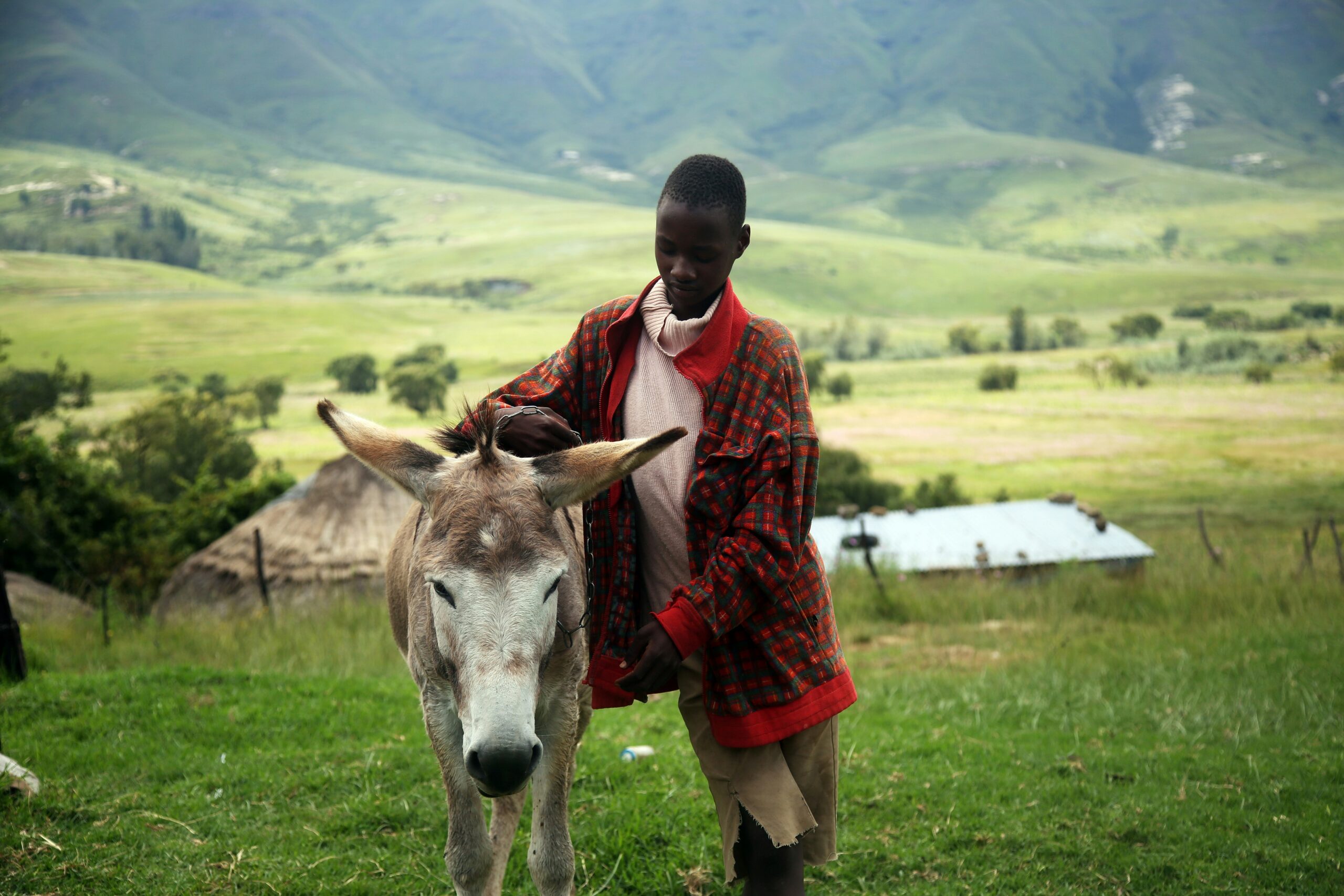Introduction to England and Albania
England and Albania, two nations steeped in rich historical legacies, offer a fascinating contrast in geography, culture, and societal evolution. England, part of the United Kingdom, is situated in the northwestern region of Europe. Known for its rolling hills, historical landmarks, and vibrant cities such as London, England has played a pivotal role in shaping global politics, economics, and culture over the centuries. Its history is marked by significant events, from the establishment of the Magna Carta to the Industrial Revolution, which have left an indelible mark on its societal framework.
Conversely, Albania, located in Southeast Europe on the Balkan Peninsula, is characterized by its diverse landscape ranging from picturesque mountains to rugged coastline along the Adriatic and Ionian Seas. The country has a distinct cultural heritage, shaped by a multitude of influences—Ottoman, Byzantine, and more recently, Western European. Albania’s history, although less globally recognized, is equally rich, featuring periods of both tumult and resilience, such as its transition from a communist regime to a parliamentary democracy in the 1990s.
Both England and Albania boast unique languages and traditions. English, a dominant global lingua franca, contrasts sharply with Albanian, a language belonging to a distinct branch of the Indo-European family. This distinction highlights the cultural divergence between the two nations. However, underlying similarities in human experiences and aspirations can also pave the way for mutual understanding and respect.
This blog post endeavors to explore the intricate connections between England and Albania, examining their historical interactions, cultural exchanges, and the influences that have shaped their relationships throughout the years. In doing so, we aim to underscore the rich tapestry formed by these two distinct yet interconnected nations.
Historical Ties between England and Albania
England and Albania share a complex historical connection that has evolved over centuries, influenced by various political, military, and cultural factors. The initial interactions between the two nations can be traced back to the 19th century, during a period characterized by significant geopolitical shifts in Europe. Both nations found themselves navigating the turbulent waters of the Balkan Wars, where England’s interest in maintaining stability in the region often intersected with Albania’s quest for national identity and autonomy.
One of the crucial moments in fostering diplomatic ties occurred after the declaration of Albania’s independence in 1912. England recognized Albania’s sovereignty, marking a formal acknowledgment of its nationhood amidst the backdrop of the Balkan conflicts. During World War I, Albania’s strategic location made it a point of interest for allied forces, including the British military. This period of military alliances initiated a rapport that would lay the groundwork for future diplomatic relations.
Furthermore, notable figures played a pivotal role in cementing these connections. Sir Edward Grey, the British Foreign Secretary during the early 20th century, recognized Albania’s significance and often advocated for its interests in various international forums. Such engagements highlighted England’s commitment to supporting the fledgling nation amidst regional turmoil. The relationships formed during these challenging times were not solely political; they also paved the way for cultural exchanges that would follow in subsequent decades.
Additionally, the impacts of migration during the late 20th century further intertwined the histories of these two nations. The Albanian diaspora in England has contributed significantly to cultural understanding and collaboration. The historical ties between England and Albania reflect a rich tapestry woven through diplomacy, military alliances, and humanitarian endeavors, shaping a relationship that continues to develop in contemporary times.
Cultural Exchange: Literature and Arts
The cultural exchange between England and Albania is rich and diverse, particularly in the realms of literature and the arts. Over the years, authors, poets, and artists from both nations have contributed to a mutual understanding and appreciation of each other’s cultural narratives. This intermingling of artistic expression has produced notable works that offer insights into the values and experiences of each society.
In literature, several English writers have found inspiration in Albanian themes and folklore, while their Albanian counterparts have similarly drawn upon British literary traditions. For example, the introduction of Albanian poets like Dritero Agolli and the important role of figures such as Ismail Kadare have propelled Albanian literature onto the international stage. Kadare’s explorations of Albanian identity, history, and politics provide a profound commentary that resonates with themes found in the works of English authors, such as George Orwell and Virginia Woolf, who delve into the nuances of societal structures.
Furthermore, literary festivals and collaborative projects between the two countries have facilitated these artistic exchanges. The establishment of cultural institutions, such as the British Council in Albania, has promoted dialogue by hosting workshops, readings, and exhibitions focused on English and Albanian literature. Initiatives like these not only spotlight individual talent but also foster a community of writers engaged in cross-cultural collaboration.
The visual arts demonstrate similar trends, with Albanian artists exploring themes that often intersect with contemporary British art. Events like the Tirana Art Lab and various exhibitions held in both countries encourage communication and showcase the mutual influence that these artists have upon one another. Through shared platforms, such as art triennials and joint exhibitions, the collaborative spirit continues to thrive, exemplifying the deep cultural connections between England and Albania.
Culinary Connections: A Taste of England and Albania
The culinary landscape of England and Albania presents a rich tapestry of flavors, ingredients, and cooking techniques that reflect the unique history and culture of each nation. Traditional dishes serve not only as sustenance but also as a medium through which cultural identity is expressed. In England, one may find iconic meals such as fish and chips, roast beef with Yorkshire pudding, and shepherd’s pie, which have become staples, epitomizing the heartiness of British cuisine. These dishes often utilize local ingredients, showcasing seasonal produce and traditional cooking methods that have been passed down through generations.
Conversely, Albanian cuisine is characterized by its Mediterranean influences, featuring dishes that highlight the use of fresh vegetables, lamb, and dairy. Traditional meals such as byrek (a savory pastry filled with meat and vegetables), tave kosi (a baked lamb and yogurt dish), and fasule (bean stew) are integral to Albanian culture. Herbs and spices like dill, mint, and garlic create a distinct flavor profile, often complemented by the freshness of locally sourced produce. The culinary practices in Albania emphasize communal dining, fostering a sense of connection and hospitality, similar to those in England.
The process of globalization has significantly influenced food culture in both countries, paving the way for culinary exchange. In England, the presence of Albanian restaurants and chefs has enriched the gastronomic landscape. Popular eateries such as ‘Burek’ in London showcase traditional Albanian dishes, allowing a broader audience to experience the authenticity of Albanian flavors. Through these dining establishments, the fusion of diverse culinary traditions highlights the increasing interconnectedness of global food culture. The exchange of recipes and techniques demonstrates how global culinary trends can inspire innovation, resulting in a vibrant blend of flavors that reflect both England’s and Albania’s heritage.
Sporting Relations: Football and Beyond
Sport, particularly football, serves as a universal language that connects cultures across the globe. The sporting relationship between England and Albania is a remarkable example of this connection. In recent years, there has been a noticeable presence of Albanian players in English football leagues, reflecting a growing interchange of talents. Noteworthy football clubs in England have signed Albanian players, enhancing competitiveness while simultaneously fostering cultural exchange. Players such as Endri Cekici and Armando Broja have not only made significant contributions to their respective teams but have also brought attention to Albania’s rich sporting culture.
The introduction of these athletes into the English football landscape has resulted in a dual impact. Firstly, it has contributed to the globalization of English football, showcasing the diverse backgrounds of players. This inclusion aids in altering cultural perceptions and breaking down stereotypes associated with nationality in sports. Additionally, Albanian footballers in the English leagues help to inspire young athletes in Albania, offering them relatable role models who exemplify the success achievable through hard work and dedication.
Beyond football, there are various sporting exchanges that symbolize the growing relationship between England and Albania. Collaborative initiatives, such as training camps and youth exchanges, help foster connections between the two nations. These joint efforts not only emphasize shared values of teamwork and perseverance but also enhance cross-cultural understanding. Events such as friendly matches have also provided a platform for celebrating shared sporting traditions and heritage.
Such interactions promote diplomacy through sport, allowing nations to engage in a constructive dialogue. It is through these shared experiences in the realm of sports that the cultural ties between England and Albania continue to strengthen, illustrating the profound influence of athletics in bridging gaps and fostering connections between different cultures.
Migration Patterns: The Albanian Diaspora in England
The migration patterns of the Albanian diaspora in England reveal a complex interplay of socio-economic and political factors influencing individual and collective decisions to relocate. Historically, the first significant waves of Albanian migrants emerged during the late 20th century, driven primarily by political unrest and economic hardship in their homeland. The tumultuous events surrounding the fall of communism in the early 1990s prompted a surge of Albanians seeking refuge and stability in various European nations, including England. This movement, however, did not stop there; subsequent waves followed, particularly during periods of economic crises in Albania, which galvanized individuals in search of better opportunities abroad.
The allure of England has been multifaceted for Albanian migrants. On one hand, the established Albanian communities in cities such as London and Manchester provided a familiar support network, easing the transition for newcomers. On the other hand, the economic prospects in England, characterized by greater job availability and higher wages, attracted many individuals to pursue better livelihoods. Many Albanians have found employment in sectors such as hospitality, construction, and services, contributing significantly to the local economies while enriching the cultural landscape with their traditions and customs.
The presence of the Albanian diaspora has notably shaped cultural perceptions and collaborations within England. Contributions from the diaspora extend beyond economic participation; they have played a vital role in fostering cultural exchange. From gastronomy to art, Albanian communities have introduced their rich heritage to the English populace, facilitating mutual understanding. Furthermore, initiatives aimed at preserving Albanian identity, while also intertwining with British culture, have emerged as a testament to their multifaceted experiences. In summary, the migration patterns of Albanians to England reflect resilience and adaptability, underscoring a dynamic interaction between cultures that continues to evolve today.
Educational Exchanges and Collaborations
The educational relationship between England and Albania has evolved significantly over the years, marked by various student exchange programs and collaborations between universities. These initiatives have played an essential role in promoting mutual understanding, enhancing educational standards, and fostering cultural connections between the two nations. Through these partnerships, students from both countries gain invaluable experiences that extend beyond the academic realm.
Student exchange programs have been pivotal in this relationship. They allow Albanian students to experience England’s educational system and vice versa. These programs are designed to immerse students in different cultural environments, encouraging personal growth and academic development. For instance, students in England can explore the rich cultural heritage of Albania while engaging in language studies or specific areas of interest such as history, sociology, and arts. Such exposure helps cultivate global citizens equipped to navigate a diverse world.
Moreover, collaboration between universities in England and Albanian institutions has seen significant advancements. Joint research initiatives, academic conferences, and faculty exchanges are facilitated to enhance educational frameworks and content. Engaging in joint ventures allows for the sharing of knowledge and resources, leading to improved curricula and teaching methodologies. Universities in both countries are increasingly recognizing the importance of these partnerships as they aim to expand their academic reach and influence.
In terms of educational advancement, initiatives like scholarship programs have helped boost opportunities for Albanian students to pursue higher education in England. These scholarships not only provide financial assistance but also create networks that facilitate ongoing support and collaboration. Through these educational endeavors, both England and Albania are committed to nurturing a new generation of learners who appreciate cultural diversity and the importance of collaborative learning.
Current Relations: Political and Economic Ties
The relationship between England and Albania has evolved significantly in recent years, marked by growing political and economic ties. In the realm of trade, both nations have engaged in various agreements that facilitate economic interaction, fostering an environment conducive to investment and commerce. The United Kingdom has positioned itself as a key trading partner for Albania, particularly after the establishment of the UK-Albania Trade Agreement, which aims to reduce tariffs and encourage British investment in Albanian industries such as tourism, agriculture, and renewable energy.
Diplomatic initiatives play a crucial role in enhancing the ties between England and Albania. Both countries have actively participated in international forums, collaboratively addressing issues such as regional stability, security, and climate change. The UK’s commitment to the Western Balkans, including cooperation on security and counter-terrorism, bolsters Albania’s efforts in maintaining regional peace. Furthermore, the UK has been instrumental in supporting Albania’s aspirations for European Union membership, offering guidance and assistance in meeting accession requirements. These diplomatic efforts underscore a mutual recognition of shared interests and values.
In addition to trade and diplomacy, the two countries have collaborated on international development initiatives. The UK’s Department for International Development (DFID) has funded projects aimed at improving governance, education, and health systems within Albania. This support fosters a sustainable economy in the long term and contributes to the mutual growth of both nations. Furthermore, collaborations on environmental issues, particularly regarding climate change and renewable energy, reflect a commitment to not only bilateral relations but also global responsibilities.
Overall, the political and economic ties between England and Albania are increasingly interwoven, benefiting both nations through diverse collaborations and shared goals. This evolving relationship serves as a testament to the potential for future cooperation and mutual growth.
Conclusion: The Future of England-Albania Relations
The relationship between England and Albania has evolved significantly over the years, characterized by a blend of historical ties, economic collaboration, and cultural exchanges. As both nations navigate an increasingly interconnected world, the potential areas for further cooperation and engagement are promising. In recent times, diplomatic relations have strengthened, leading to increased mutual understanding and networks between the two countries. This development not only promotes cultural interchange but also enhances economic partnerships across various sectors.
One area ripe for collaboration is education. The potential for student exchange programs and academic partnerships between English and Albanian institutions can foster mutual learning and cross-cultural understanding. Additionally, the rise of the digital economy presents numerous opportunities for technology firms in both countries to collaborate. By combining Albania’s emerging tech sector with England’s established platforms, there exists a possibility to create an innovative hub for technological development and services.
Moreover, tourism is a sector that continues to hold great promise. Albanians seek opportunities to explore the rich history and landscapes of England, while England stands to benefit from the growing interest in Albania as a travel destination. Promoting tourism can enhance people-to-people connections, strengthening the bonds between the two nations further.
Furthermore, as global challenges such as climate change intensify, collective efforts towards sustainable development can serve as a significant avenue for partnership. England and Albania can work together in addressing environmental issues, sharing best practices, and enhancing resilience in facing these challenges.
In conclusion, the future of England-Albania relations appears vibrant, marked by the potential for sustained dialogue and collaboration across various fields. The emphasis on partnership can lead to meaningful exchanges that contribute to enhancing the social and economic fabric of both nations. Continued commitment to fostering these connections will only enrich the ties that bind England and Albania.



